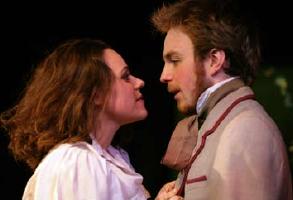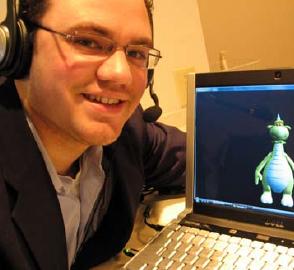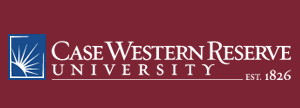Hannah Cha isn't sure where she first heard about Experiential Learning Fellowships—research grants awarded by the College to students in the arts, humanities, and social sciences. But she does remember her excitement when she found out that such a program existed. "In a heavily science- and engineering-dominated school," she says, "it was awesome to see an opportunity geared toward liberal arts subjects."
This spring, Cha will avail herself of that opportunity. A political science and economics major, she is spending her junior year at University College London, taking courses in history and political theory. But once she finishes her exams, she will embark on a research mission to six U.S. embassies in Europe and Asia. She plans to interview foreign service officers in France, Denmark, the Czech Republic, Kazakhstan, Greece, and South Korea about the depth of their engagement with the cultures of their host countries.
Cha developed her research plan with guidance from a faculty mentor, political science professor Vincent McHale. But the idea for the project was hers, and it clearly reflects her interests and aspirations. Cha is preparing for a career in the foreign service; in fact, she was recently named a Thomas R. Pickering Foreign Affairs Fellow by the U.S. Department of State, an honor that includes scholarship support, internships, and mentoring as she completes her education and obtains her first posting overseas. For Cha, then, the question of how American officials relate to their cultural surroundings could not be more pertinent.
Cha is one of 60 undergraduates with majors or minors in the College who have received Experiential Learning Fellowships since 2004. With generous support from the Cleveland Foundation, the program has made grants totaling $250,000 to pay for travel, equipment, conference fees, and other research-related expenses. To secure the program's future, other donors have come forward to endow fellowships that will support undergraduate research in selected disciplines year after year (see sidebar below).
"Historically in the College of Arts and Sciences, students in the natural sciences, and to a lesser degree in the social sciences, have had experiential projects in the laboratories of their faculty mentors," says Associate Dean Stephen Haynesworth, who first proposed the creation of the fellowship program and has directed it since its inception. "But in the humanities, and the arts in particular, faculty normally don't have the research funds to support such student-directed projects."

Andrew Willson performing in Maxim Gorky's
play Summerfolk
at The Oval
House Theatre
in London. The actress, Celina
Deitchman,
is an alumna of the University of San Francisco.
Like Cha, many Experiential Learning Fellows have traveled the globe. Tejasvi Pasupneti interviewed women in rural Ghana to assess their knowledge of malaria prevention and treatment. Lauren Groesbeck followed China's Silk Route to study Buddhist cave art from the Wei and Tang dynasties. Andrew Willson attended London's Royal Academy of Dramatic Art as preparation to conduct workshops in Shakespeare performance for theater students in the College. Other fellows have made research expeditions to Japan, Greece, Italy, Bolivia, Kenya, and the Palestinian territories.
As Haynesworth points out, however, the key experience the program offers is that of creating and carrying out an independent project. "The students really don't have to leave University Circle to engage in experiential learning," Haynesworth says. "Some of the best projects have been done right around Cleveland."
21st-Century Ventriloquism

Michael Molinaro and his animated creation, Dragoon the Dinosaur
How do children acquire what experts call phonological awareness? One way, Molinaro explains, is by mastering the art of rhyme. In his study, he is asking whether children can gain this mastery by interacting with animated characters in a virtual world.
With funds from his Experiential Learning Fellowship, Molinaro purchased specialized computer equipment and created a program called Real-Time Animated Puppetry. With this program, children at Laurel engage in rhyming exercises led by an articulate dinosaur. The teacher is actually doing the talking, but her voice, morphed by software, emerges as the dinosaur's voice. It is 21st-century ventriloquism, all in the service of speech-language proficiency and reading readiness.
One group of preschoolers is receiving this instruction for the first four weeks of the study, while another class is taught by more traditional methods. The children's phonological awareness and rhyming ability were assessed initially and will be again after the first month. Then, to ensure that all of the preschoolers obtain whatever benefit may accrue from the animation technology, the dinosaur will spend four weeks in the second class, while the first class returns to traditional instruction.
Molinaro developed his project with guidance from Stacy Williams, assistant professor of communication sciences, who has pioneered the use of virtual reality as a teaching resource for people with speech-language disorders. As with all Experiential Learning projects, however, Molinaro's study is not merely an extension of his faculty mentor's research. In work he had done with autistic children, Molinaro found that youngsters with virtually no functional language skills could reenact entire scenes from Disney films from memory. Having seen that animation can motivate children to learn, he got the idea of integrating it into instruction for normally developing preschoolers.
Before he could begin his study, Molinaro didn't just have to write a successful proposal. He also had to obtain Institutional Review Board approval from the university (a requirement for all research involving human subjects), manage his budget as he acquired equipment and supplies, and build relationships with the teachers he trained to use the technology. Once the project is finished, he will enter the next stage in the research process—writing up his findings and presenting them at professional conferences.
"This experience has helped me grow and mature as a researcher," Molinaro says. "It has given me a platform for doing further research in graduate school, for a master's thesis or for a doctorate. It has also given me a chance to work with this kind of experimental technology, and to learn how powerful it can be."
Williams says that undergraduates throughout the College can benefit from such experiences. "When faculty are able to share their passion for research, it helps students start to see what's available to them and then take it in their own direction," she says. "They put their knowledge and skills into practice to address real-world questions and problems that need to be solved."
